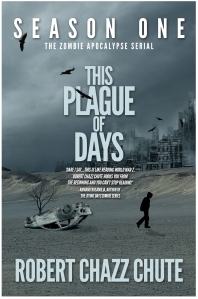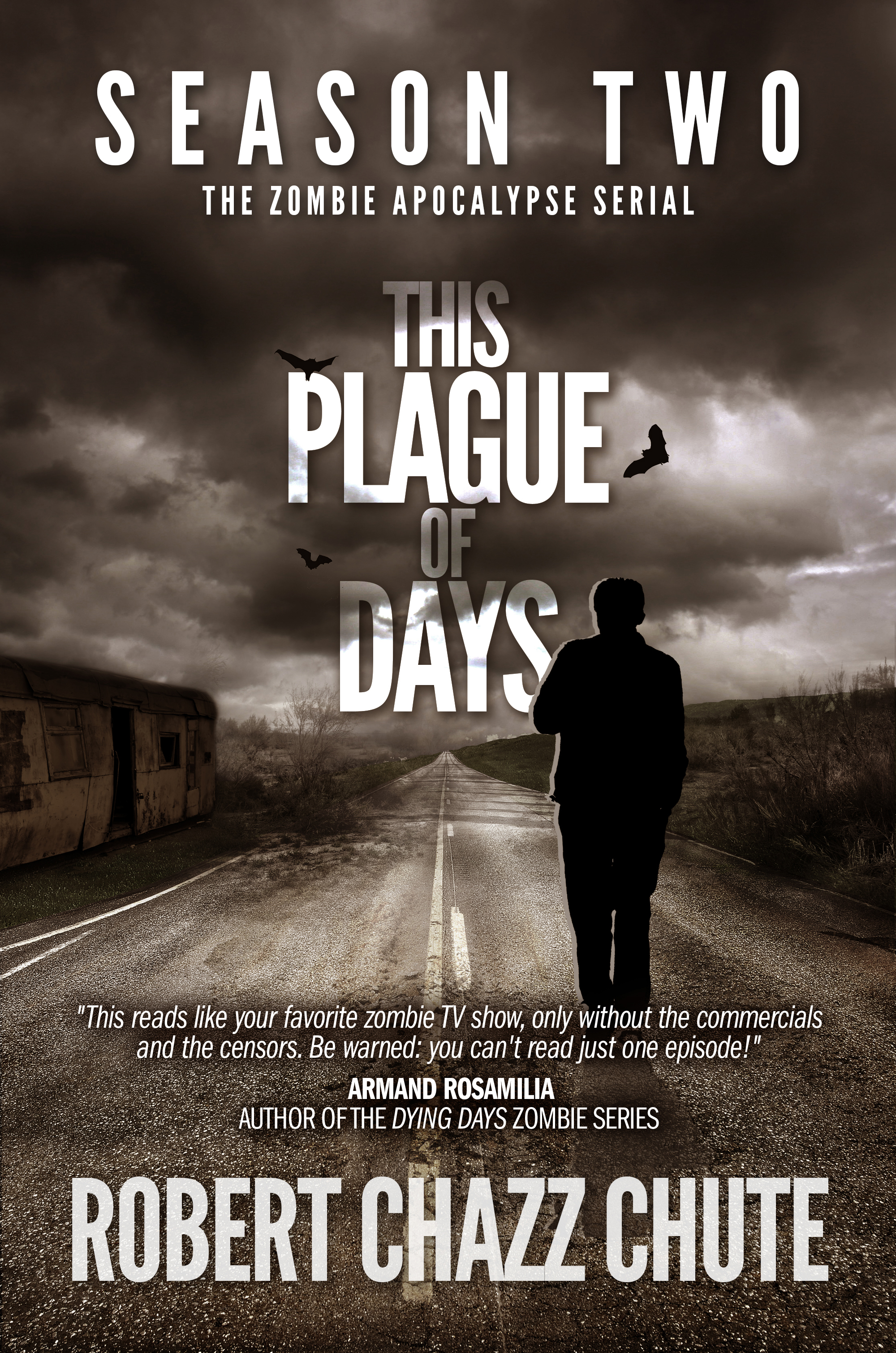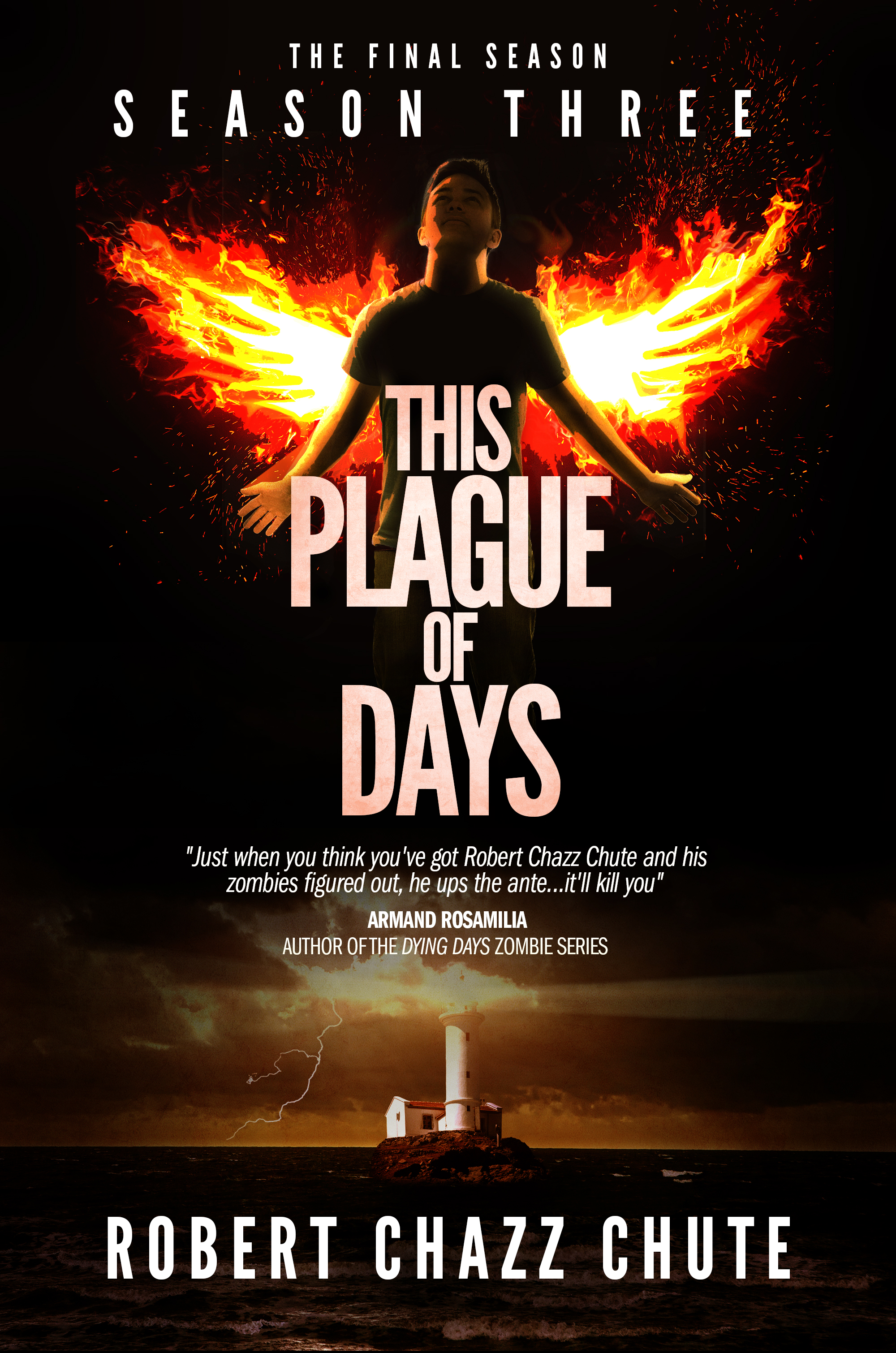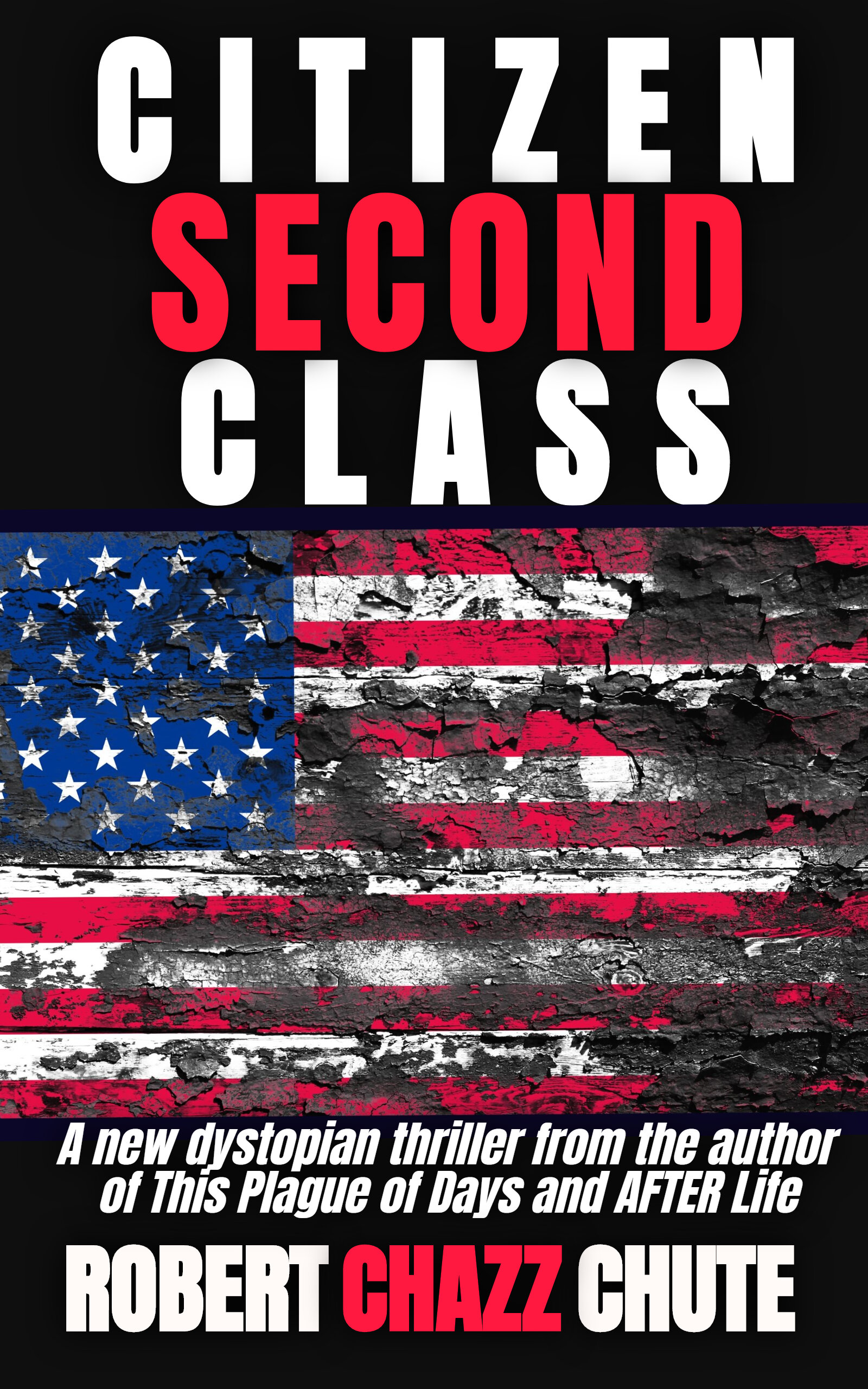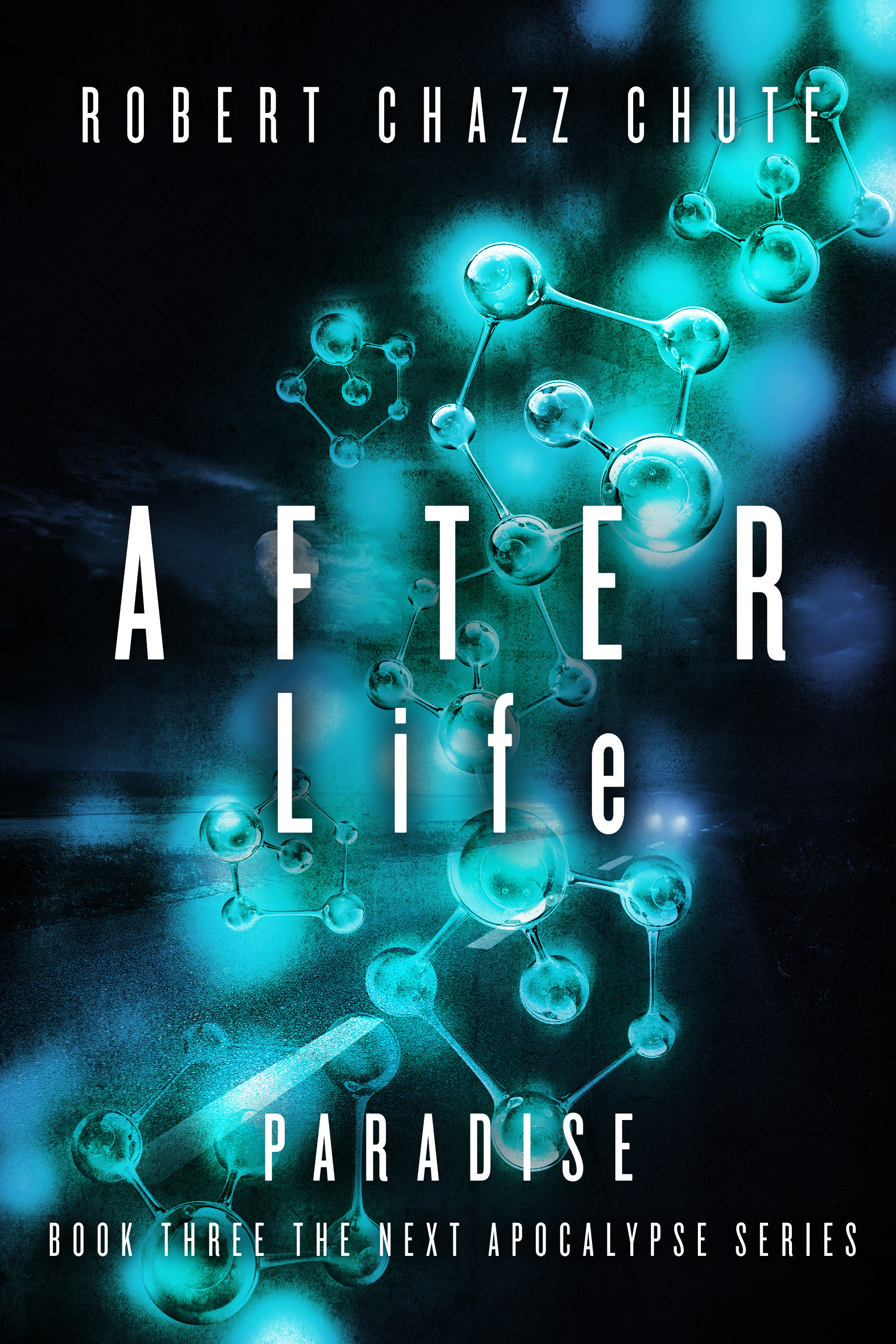Kelly Dickson had been a mother, wife and elementary school teacher at the Brooklyn School for the Blind. Before X, Z and A — three deadly strains of the Sutr virus — pulled the world down the path toward the new Dark Ages, Kelly lived in New York all her life. She named her dog (a tall, affectionate boxer) Batman. She faced the darkness with a smile, confident she could find the way.
As the summer turned to autumn and Sutr’s first stirrings were still a vague, foreign problem mentioned at the bottom of newscasts, Kelly shook as she asked her husband to check the electronic test kit for her. Kelly was nervous about having a child. The sensor read: blue.
Kelly didn’t know what blue meant. She didn’t know what the color blue looked like, either.
“It means we’re pregnant,” Brad said.
“One of us is more pregnant than you,” Kelly said. It was true the baby was an accident, but one of the happy kinds.
“It’ll be okay. It’ll be better than okay. We’ll make it good. Maybe even great.”
“I’m scared, but I think we’ll just have to settle for perfect,” she said.
“We’re too ambitious not to try, right?”
“Yes, that’s true.” She kissed him.
Her husband, Bradley Dickson, was an engineer for Dell. Brad had been buried under high aspirations and heavy work long before the baby. As the baby grew within Kelly, the world changed behind the Dicksons. It was as if they stood with their backs to a movie screen, oblivious as the plagues built in strength. They fixated on a bright future instead. They talked of someday grandchildren. They could only see each other.
When the baby came, Kelly gave birth at home. The hospitals weren’t considered safe for childbirth by then. A neighbor woman helped Brad deliver the child, a little girl the Dicksons named Susan. After the baby was born, Brad took up any slack. He helped with the baby without a grumble, rising above Kelly’s expectations in every way.
Then the first wave of the Sutr-X virus hit New York deeper and harder. Quarantines and looting began. Brad’s abilities shone even brighter. He was strong. He knew guns. When the looters came to steal from the Dicksons, he drove the gang away with a bullet between the eyes of the first thief who made it through their barricaded door.
“Count the days,” Brad said. “On the other side of this thing, we’ll say we spent 100, or maybe 200 days, in hell. Then everything will get back to okay and someday we’ll bore our grandchildren with stories about the big, bad flu. Someday, all this will feel as remote as the trials and horrors of pioneer days. I swear.”
Brad told Kelly that he’d thrown the looter’s corpse in the street as a warning to anyone else who would threaten his family. His voice was steady and calm and so matter-of-fact, he scared her a little. Later, she heard him crying in the night as he rocked the baby.
It was the first time she’d ever heard Brad cry. When he did that, she was filled with confidence that the plague hadn’t driven him mad. Despite throwing a corpse into Nostrand Avenue, her husband was still one of the good guys. Kelly was so sure then that they’d make it through the Sutr pandemic.
Then the baby began coughing. The Sutr Flu took tiny Susan Dickson on a Thursday night as a rainstorm poured and pounded.
Brad withdrew and stayed in the nursery with the baby. He wouldn’t come out and Kelly couldn’t force herself to come in. The smell of baby powder, the softness of Susan’s flannel sheets and the small, too-quiet room set off more crying jags. Kelly stayed in her bed.
Kelly knew she could stop counting the days now. The calendar would never matter again. There would be no first steps or first day at school or someday grandchildren. With the baby dead and gone (gone where?), no matter how soft and warm the weather, every day would feel like the rainy Thursday night Susan died.
Kelly slept and hoped it was all really nightmare born of maternal fears compounded by a failing world. Her baby’s cry did not wake her. A full day had passed. When she went to the door, she could hear the rocker’s creak on the old hardwood floor. Brad still held Susan, rocking gently and muttering to the child, but the baby would never awake.
“There are flowers called baby’s breath,” Kelly told Brad from the nursery door. “Until now, I never thought how morbid that sounds. Something that dies right after you get it shouldn’t be called baby’s breath.”
“It’s time,” he said. “We can’t keep her here any longer.”
That was all Brad said. When Susan died, it was as if the baby had taken part of Brad with her, leaving Kelly and her guide dog alone with the ghost of what might have been.
* * *
Kelly and Brad made their way to the nearest church to bury Susan.
Even as he dug their daughter’s tiny grave, between Kelly’s sobs and moans, Brad began a gravelly cough that would not ease. With the exertion of digging, his hacking coughs came thicker and faster. “Kell…I’m sorry. I think I’m gonna have to dig a bigger hole.”
“You are leaving me alone.”
“Just…” Brad broke into another coughing fit. “I thought I could fight it, Kell. I really did. I’ve had the fever for a few days. I didn’t want to tell you.”
“You’ve been hiding it from me.”
“I’m afraid…when I went out to find food…I’m afraid I brought it back with me. Sutr got me, but I killed Susan.” He wept, then spit something out. Then Kelly listened as Brad threw up and wretched.
“Give me the shovel,” she said. “I can dig.”
“I’ll hold her,” Brad said. “When it’s bedtime, could you please tuck us in together? I’ll keep her safe. Susan and I will hide under the covers.”
Batman whined, snuffled and nuzzled Kelly’s hand, looking for reassurance. Maybe the guide dog somehow sensed the horrors still on the way. Kelly had no reassurance to offer. She wept as she dug.
Brad coughed a long time, each breath wheezing into the next, shorter and shallower as the day cooled to night.
Heedless of nightfall, Kelly knew darkness. She kept digging, making comfortable room for two.
Brad struggled to breathe and spat thick liquid obstructions into the growing pile of dirt beside him. His fever spiked into hallucinations and Brad began to talk to his dead baby about fields bathed in sunshine.
“Do you see that, Susie?” Brad asked, his thoughts floating in at a languid pace. “Elysium fields…white circles in the sky…bullshit harps and wings of false promises…the end of trying. Susie, I don’t wanna try no more…I’m tired, baby. I’m really…really…bone tired.”
And Brad stopped trying. His arms went slack and he almost dropped the baby. He lay down and covered Susan in loose dirt until only her cherubic face was exposed to the world.
Later, Brad stopped breathing.
Kelly was angry when she’d found what he’d done with the baby. She wept and wailed as she pushed him into the open grave.
When she was ready to say goodbye to them both, she placed the baby carefully in her husband’s arms for the last time. She picked up the shovel and tucked Brad and Susan in for their longest night.
~ The finale to the Plague of Days trilogy launches on Father’s Day. On June 15, This Plague of Days, The Complete Three Seasons by Robert Chazz Chute will also be released. The future is sweet and terrible and thought-provoking and filled with the infected (of several varieties.)

